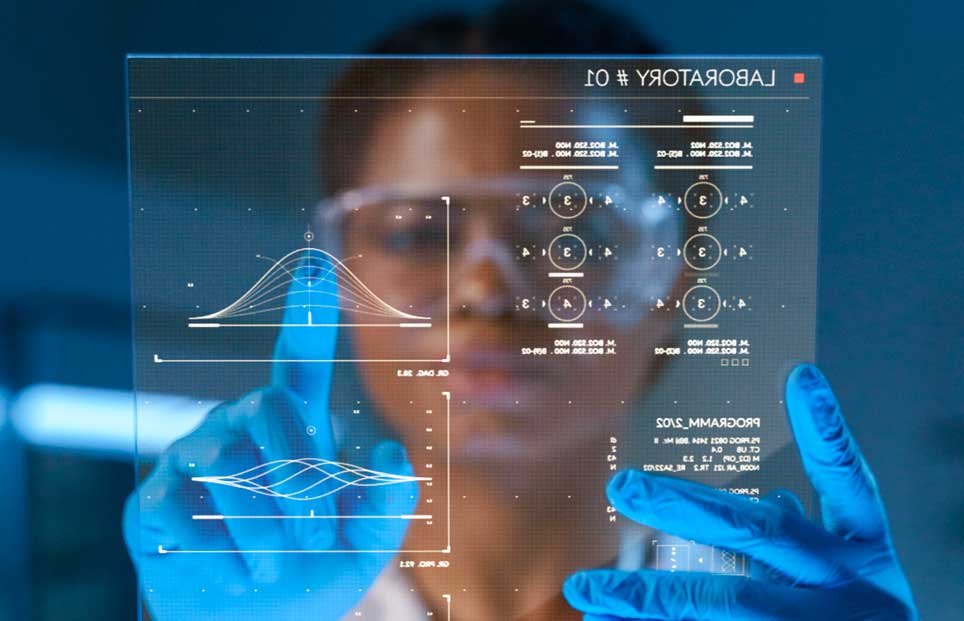Health informatics is a subfield within the information technology industry that leverages patient records and related data to improve healthcare delivery and outcomes. And while patient records have always played a crucial role in healthcare, the widespread adoption of electronic health records (EHRs) has necessitated a new role: the health informatics specialist.
Keep reading to learn more about what a health informatics specialist does, the skills employers are looking for, and how you can break into the field.
What is a health informatics specialist?
A health informatics specialist is a professional who works with various forms of data in a healthcare setting. This data can include patient records as well as other types of health information. Health informatics specialists often possess a background in healthcare, such as a nurse, before pivoting into informatics.
What do health informatics specialists do?
A health informatics specialist’s daily responsibilities can vary significantly depending on several factors.
Smaller organizations, for example, may have a smaller informatics team where fewer individuals are responsible for a more generalized variety of tasks. In larger organizations with more resources, health informatics specialists’ duties will often be more specialized.
According to Jay Spitulnik, associate teaching professor and director of Northeastern’s MS in Health Informatics, an interdisciplinary program between Bouvé College of Health Sciences and Khoury College, health informatics specialists deal broadly with the collection, storage, management, analysis, and reporting of health data. He notes that the four most common roles for health informatics specialists are as analysts, project managers, consultants, and implementation support.
- Health information analysts collect data, analyze it to answer organizational questions or challenges, and run reports that can be used to identify trends or work with individual patients.
- Health information project managers plan and execute large-scale informatics projects, such as designing, building, and maintaining a database.
- Health informatics consultants are typically employed as a part of a project or contract. They help their clients establish mechanisms for effective informatics management, processes, and programs.
- Implementation support specialists help to institute a new informatics program, management process, or technology. These individuals will also often be involved in training others to use and interact with the system. This role can be either internal or external (like the consulting role above).
How much do health informatics specialists make?
According to PayScale.com, the median annual salary for a health informatics specialist is $69,900 per year or roughly $33.61 per hour. This salary can reach a high of $117,000, depending on the individual’s education level and experience. Profit-sharing and annual bonuses are also common benefits for these professionals, although the exact amounts vary significantly depending on the organization.
Where do health informatics specialists work?
A health informatics specialist can work for a wide variety of different types of employers within the healthcare industry. Some of the most common types of employers include:
- Provider organizations: Major health systems employ many health informatics specialists, though individual hospitals, clinics, or even private physician’s practice also hire these professionals.
- Medical device manufacturers: Manufacturers of medical devices that collect and transmit health information—like pacemakers or blood glucose monitors—also rely on health informatics specialists.
- Pharmaceutical companies: Since these companies produce personalized medicine, they must maintain databases of customer information. Likewise, pharmacies are held to the same legal standards as doctors regarding HIPAA compliance and customer data protection. For this reason, the data analysis skills health informatics specialists bring to their roles are invaluable to these companies.
- Commercial insurance companies: Health and life insurance companies rely upon health informatics specialists to maintain their customer databases, which can have a significant impact across the business—from an individual customer’s premiums to the solvency of the entire company.
- Governmental companies: Governmental agencies—like the Centers for Medicare & Medicaid Services (CMS)—employ many health informatics specialists at federal and state levels. Additionally, health informatics specialists can play an essential role in advising healthcare policy.
In short, a health informatics specialist can be employed by any organization that regularly receives, handles, or relies upon patient data or other health information.
Becoming a Health Informatics Specialist
If you are interested in becoming a health informatics specialist, there are several paths you might take.
Obtain the Right Degree
Some professionals choose to earn an undergraduate degree in information technology before pursuing a master’s degree in health informatics. Others spend years working in a healthcare capacity as a nurse or other role before deciding that they want to make a change—at which point they pursue a graduate education that empowers them to reach that goal. In either case, a master’s degree in information technology or health informatics will typically be required—such as Northeastern University’s Master of Science in Health Informatics.
Develop Your Skill Set
Working as a health informatics specialist requires versatility that enables you to comfortably step into various roles, depending on your employer’s needs, Spitulnik says. In addition to versatility, he recommends aspiring health informatics specialists develop their regulatory understanding, communication skills, and complex technical skills.
Regulatory Understanding
Health informatics specialists spend their days interacting with (or designing and maintaining systems that interact with) vast amounts of consumer health records.
Therefore, it is essential that health informatics specialists understand the laws and regulations that apply to such data, such as the Health Insurance Portability and Accountability Act (HIPAA) and Health Information Technology for Economic and Clinical Health (HITECH) Act.
After all, it is only by understanding these regulations that a professional can be confident that their systems comply.
Communication Skills
Spitulnik says communication skills are essential for success as a health informatics specialist.
“[HI specialists] need to be good listeners because they need to understand the needs of the end-users of the health information technology,” Spitulnik says. “They need to be able to listen well enough to ask the right questions, and then be able to communicate their findings.”
Thus, health informatics specialists should not only be skilled at communicating with other IT professionals but also with management, administration, and even care providers.
“Health informatics specialists very much play the role of interpreter,” Spitulnik says. “They are responsible for facilitating communications amongst all the various groups using the informatics function.”
Technical Skills
Finally, Spitulnik notes that health informatics specialists will ultimately rely on many of the same hard—or technical—skills that others in the field of information technology also rely on. These competencies include various analytics tools, technologies, and frameworks along with programming skills such as R, Python, and SQL.
Taking the time to learn how to perform data visualization can also be an asset, Spitulnik says, as it helps specialists communicate more effectively with different stakeholders.
Take the Next Steps in Your Health Informatics Career
In choosing a program to enroll in, Spitulnik recommends that students carefully consider the program’s placement rates, as well as the general educational philosophy that guides it.
“At Northeastern, close to 100 percent of our graduates are placed after graduation,” he says. “Our program is truly interdisciplinary, taking into account health science, information science, and management science to arm students with the skills and expertise they’ll need for success in their careers.”
Want to learn more about our Master of Science in Health Informatics? Explore our program page or get in touch with an enrollment coach to get your questions answered.
Download Our Free Guide

Career Guide
Everything You Need to Know About Making an Impact on Patient Outcomes





